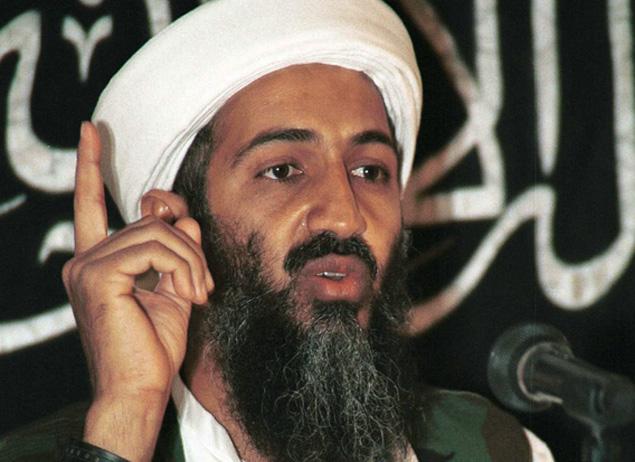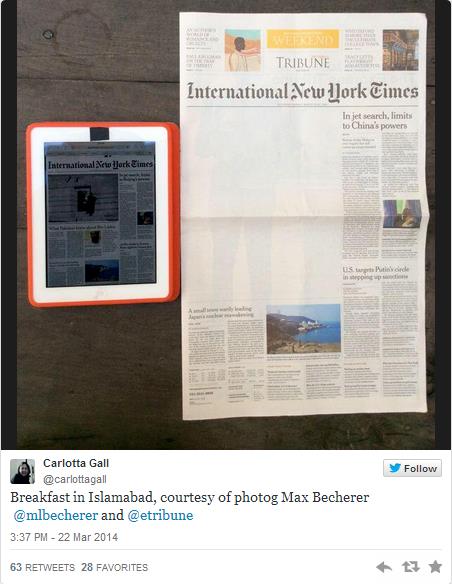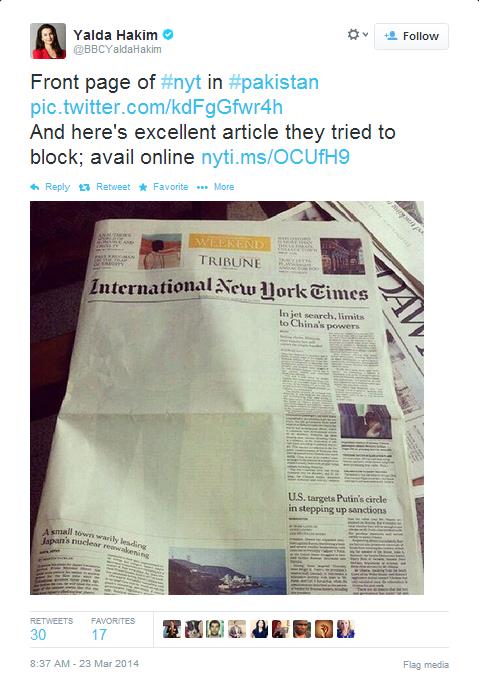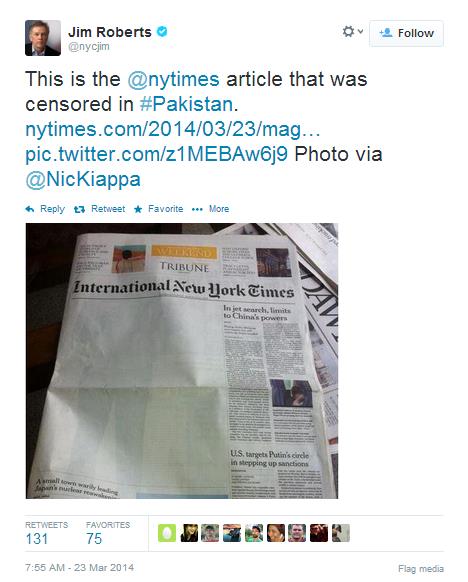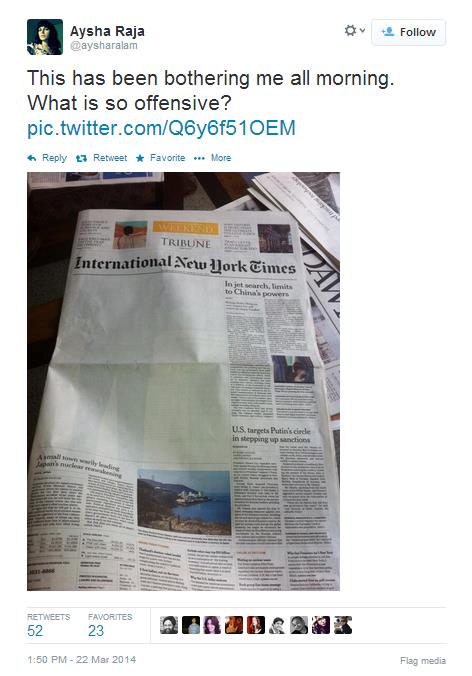[PHOTOS] What Pakistan Doesn't Want People To Read About Its Ties With Bin Laden
Today's edition of The International New York Times was stripped of its cover story in Pakistan. Instead of seeing a lengthy report on "What Pakistan knew about bin Laden," readers were greeted with an enormous section of white space that dominates the paper's front page.
This week, The New York Times Magazine published a long article with the provocative headline "What Pakistan Knew About Bin Laden"
The article, a 4,800-word excerpt from a forthcoming book by Times reporter Carlotta Gall to be published by Houghton Mifflin Harcourt next month, appeared in New York Times magazine in the US and was intended as a front-page article of International New York Times. While the story appears on most copies of the international edition, it doesn't show up in papers distributed in Pakistan, about 9,000 copies, according to the publisher.
Al-Qaida leader Osama bin Laden was traced to Pakistan's Abbottabad and shot dead by US special forces on May 2, 2011.
Image via nydailynews.comSomeone in Pakistan didn't take too kindly to the story
The story delves into the shadowy world of Pakistan's political and intelligence communities, examining what the country may have hidden from the United States while outwardly cooperating with the hunt to find Osama bin Laden in the aftermath of the September 11 attacks.
So the print edition of the International New York Times in Pakistan cut the article in its entirety, and ran with a blank space where it would have been
This is how it ran on the front page of the Times' international edition published in Asia on Saturday:
The missing story played out on Twitter as Gall herself made light of the censorship by posting a photo of the errant edition on her account with the note: "Breakfast in Islamabad"
Times's Pakistan printer, part of Express Tribune newspaper in that country, removed the article without its knowledge
"We would never self-censor and this decision was made without our knowledge or agreement," she said in an email. "While we understand that our publishing partners are sometimes faced with local pressures, we regret any censorship of our journalism."
